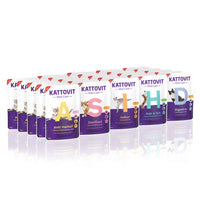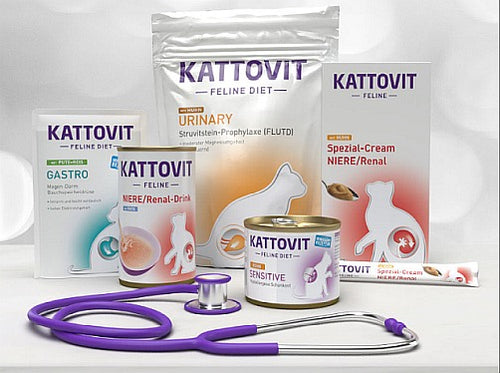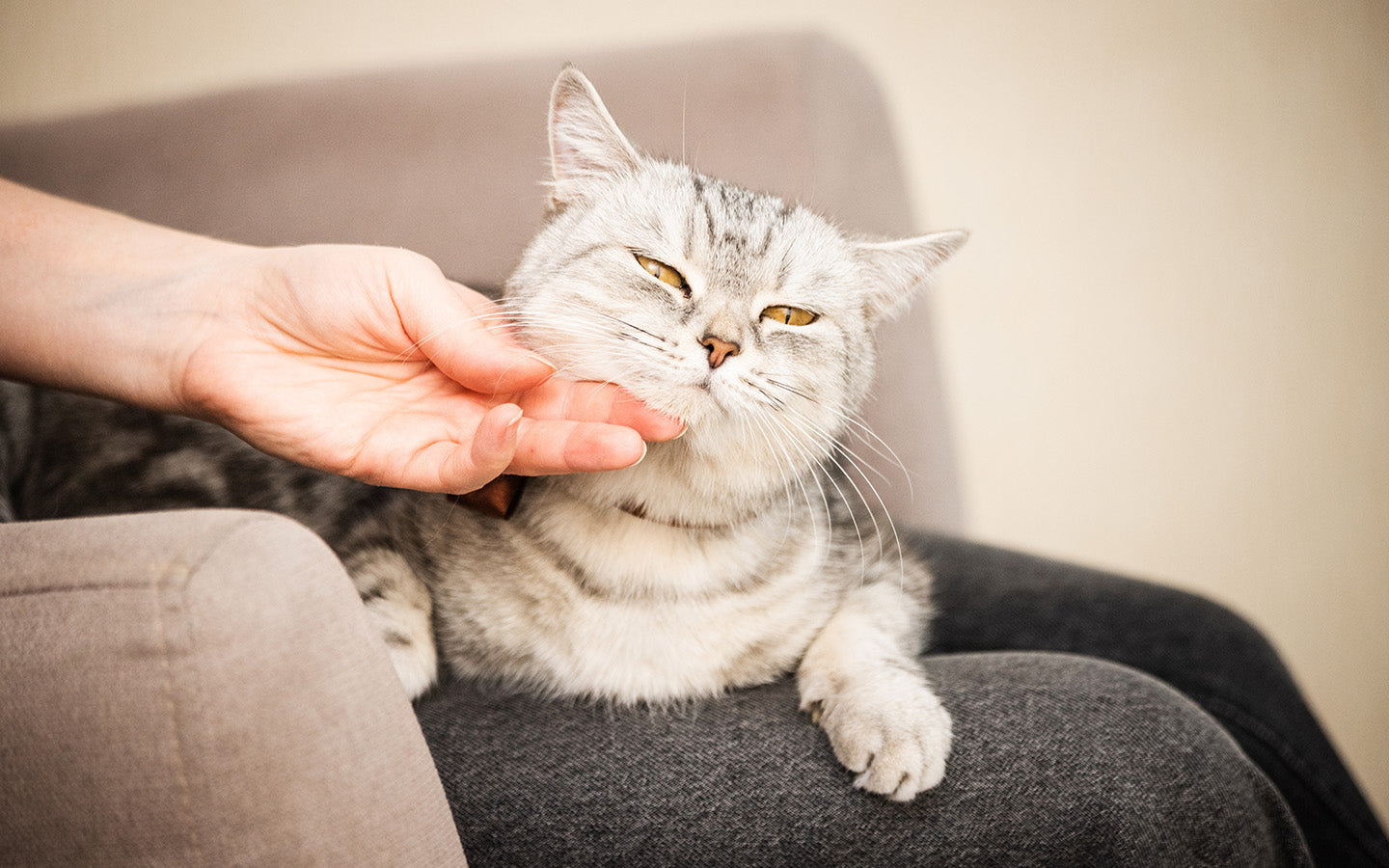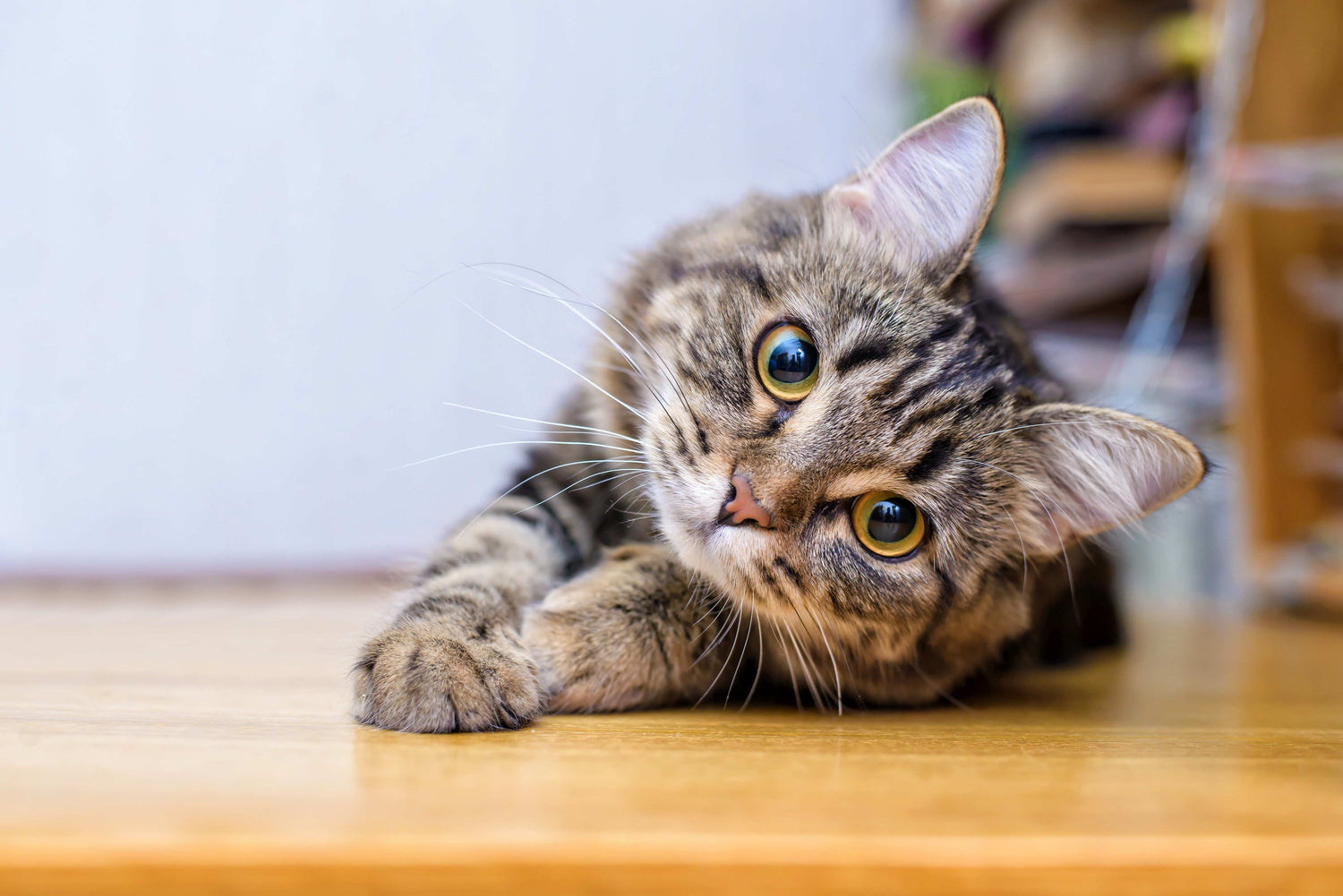A sore throat is very unpleasant for cats and can manifest itself in a variety of ways: For example, an inflammation in the throat can affect the tonsils, the larynx or the lungs. Possible causes range just as widely from a harmless cold to a serious infectious disease. Cat owners should therefore not underestimate a sore throat, but always get to the bottom of the causes and treat the animal appropriately. Here you can find out which symptoms you can use to recognize that your cat is suffering from a sore throat, what the triggers are and how you can treat the inflammation and also prevent future inflammations.
Symptoms of a sore throat in cats
Regardless of the cause, sore throats in cats are often accompanied by similar possible symptoms. These include:
- Hoarse meowing, loss of voice
- Unusual noises
- difficulty swallowing
- loss of appetite and reduced drinking
- weight loss
- vomiting of mucus
- Vomit
- fatigue and apathy
- Sniffles
- Cough
- Fever
The sore throat and difficulty swallowing caused by the inflammation often lead to a change in eating and drinking behavior in affected cats, as this causes particularly severe pain. For this reason refuse the animals sometimes Food and fluid intake . The result is a vicious circle of weight loss, fatigue and a severely deteriorated overall condition.
Therefore, always make sure that your velvet paw consumes sufficient liquid and food and is fed with important nutrients Especially for kittens and older cats, in case of dehydration a life-threatening condition can quickly occur. If you suspect that your house cat is not drinking or eating enough, you should therefore consult a veterinarian as soon as possible. Even with Fever is not to be taken lightly: If the elevated temperature lasts for more than a day, a visit to the vet is advisable. What other measures you should take in the case of the symptoms mentioned above and a suspected sore throat depends on the cause of the inflammation.
[Aufbaukur+Sensitive]
Causes of Sore Throats in Cats
Causes of sore throat in cats include bacterial and viral infections . A weakened immune system , for example due to another illness or poor quality food, can promote sore throats and contribute to the spread of inflammation from one point in the throat to another.
streptococci
A common bacterial infection is surely familiar to you: streptococci. Streptococci cause purulent inflammation of the lymph nodes in the throat. This bacterial infection is often accompanied by fatigue and fever and runny nose If you suspect streptococci, you should therefore consult a veterinarian as soon as possible, who can make the diagnosis and, in the case of streptococci, possibly prescribe antibiotics.
The tricky thing about streptococci is that they can be transmitted from humans to cats and from animals to humans. If you or another household member has been diagnosed with streptococci, you should stay away from your pet as much as possible and hygiene measures Conversely, you should also isolate your sick cat from other animals and people until it is healthy again.
tonsillitis
A typical sore throat in cats is Tonsillitis , an inflammation of the tonsils. The tonsils are part of the immune system and can stop bacterial pathogens that enter the cat through its mouth or nose. Severely swollen and inflamed tonsils are therefore usually a defensive reaction on bacteria . But also draft and one hypothermia can cause the tonsils to swell and indicate a cold. In addition to the visibly swollen tonsils, affected four-legged friends also suffer from Tiredness and apathy . Outdoor cats with tonsillitis should definitely the collar lose weight , as this further irritates the tonsils.
A visit to the vet is essential in the case of tonsillitis. If the inflammation is left untreated, in the worst case scenario it can spread and develop into laryngitis, for example.
laryngitis
Laryngitis often occurs as a result of bacterial or viral infections Also in the course of anesthesia During surgery, the cat’s larynx can be damaged by intubation and subsequently become inflamed. In addition, irritating gases or smoke and in rare cases foreign body cause laryngitis. Typical symptoms are changes in the voice up to Hoarseness, difficulty swallowing, noisy breathing and in extreme cases even Shortness of breath . Other symptoms such as discharge out of Nose and eyes, cough and Fever can be added.
Depending on the cause, the treatment of laryngitis should be approached: in the case of a viral infection, for example, with antiviral drugs, in the case of bacterial infections with antibiotics.
cat flu
Symptoms of inflammation in the throat of cats can also indicate cat flu. This does not mean a harmless cold, but an infection caused by viruses (for example the feline herpesvirus (FHV) or feline calicivirus (FCV)) or bacteria (for example Chlamydia felis or Bordetella bronchiseptica ). These bacteria promote each other, so that often cat flu complex is spoken.
Cat flu is often associated with sneezing, coughing, mucus discharge out of Eyes and nose , one heavy breathing as well as loss of appetite , weight loss , apathy and Fever The mucous membranes in the cat's throat and nose as well as its lungs are particularly affected. Ulcers can also form here.
If you suspect cat flu, you should definitely consult a veterinarian. This is important to avoid any long-term effects and to contain the disease as quickly as possible. If cat flu develops into serious pneumonia, there is a great risk. If left untreated, cat flu can even lead to the death of the cat.
treatment of sore throats
Since sore throats in cats have serious causes, can spread throughout the body and lead to dangerous developments such as dehydration, the affected animal should always be examined by a veterinarian. The veterinarian can determine the cause of the sore throat and how it should be treated. Depending on the cause, medication such as antibiotics or antiviral drugs may be an option.
Home Remedies for Sore Throats
If your cat is suffering from a sore throat, you can also use home remedies. A chicken broth prepared without salt is suitable, for example, to provide your cat with fluids and nutrients and to protect its throat. Sometimes, in the case of respiratory diseases, Honey as a home remedy recommended for cats. However, this should only be fed to cats in very small quantities, as it is difficult to swallow and can cause digestive problems. In any case, discuss the administration of home remedies with your veterinarian beforehand and, if in doubt, it is better to use professional medications .
To ensure that your sick cat continues to eat despite throat pain and difficulty swallowing, you can puree and lukewarm This makes it much easier for your pet to eat and swallow. sufficient water Be prepared and observe your four-legged friend's drinking behavior. If the cat does not drink enough, you should quickly arrange for a check-up with the vet to prevent dangerous dehydration. To encourage your cat to drink and eat despite illness, you can tasty drinks or soft creams with high-quality ingredients.
Is your outdoor cats sick, you should first keep in the house and do not let them outside until they have recovered. Otherwise, the infection could worsen in cold, wet weather. Outside, your sick cat is also exposed to numerous other viruses and bacteria and you cannot intervene if their health deteriorates quickly.
Provide your cat with a quiet place for relaxation, preferably with a warm and soft surface . If your cat's symptoms include nasal discharge and crusty eyes, you can carefully clean them with a damp cloth.
Preventing sore throats in cats
Although sore throats can have a variety of causes, there are a few things you can do as an owner to prevent the development of an infection. First of all, you should regular check-ups at the vet and all recommended vaccinations This includes, for example, a vaccination against cat flu, which should be updated regularly. There is also a vaccination against the Bordetella bronchiseptica pathogen.
Also make sure that your cat no draft exposed to heat and has a warm place to retreat to. If the house is permanently too cold due to open windows or air conditioning, this can encourage a cold.
If you or another pet is ill, you should keep your healthy cats at a distance and take hygiene measures to ensure that they do not become infected.
Your cat's immune system also plays an important role: if it is weakened, pathogens can penetrate more easily. The food is of great importance here: make sure that balanced diet and feed them high-quality food with valuable proteins and nutrients.
If your cat is still ill and has lost weight, you can, in consultation with your vet, feed it special food to help it regain its health. Our KATTOVIT building cure was developed especially for cats weakened after an illness or surgery and provides them with important nutrients during the recovery phase.









